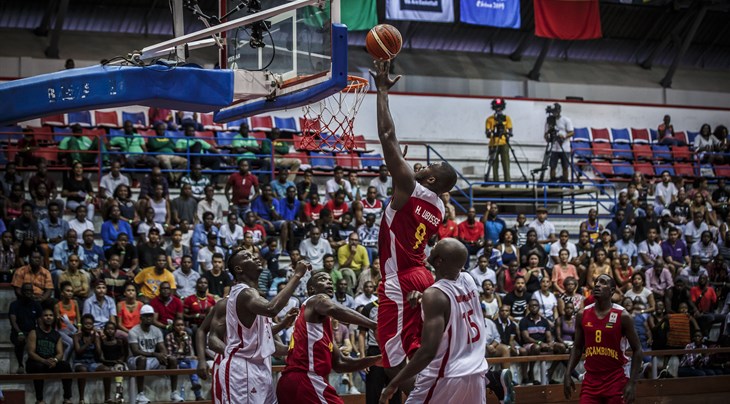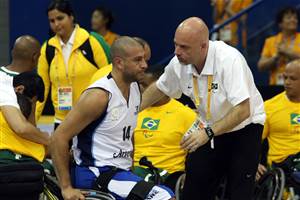
By the numbers: How teams and players are doing at African Qualifiers so far
SHEFFIELD (Julio Chitunda's African Message) - Now that the FIBA Basketball World Cup 2019 African Qualifiers are in full swing, let's look how teams and players are doing and break their numbers down.
Last November eight national teams hit the hardwood to start the race for five tickets for African teams for next year's 32-team FIBA Basketball World Cup in China.
Then, last month, Nigeria, Mali, Uganda, Rwanda, Mozambique, Cote d'Ivoire, Central African Republic (CAF), and Senegal followed suit in the second window of the African Qualifiers.
And if games statistics are anything to go by, it's fair to say that African champions Tunisia and Nigeria emerge in the pole position in the race for China 2019.
Field-Goal
Nigeria and Tunisia - who faced off in last September's FIBA AfroBasket final in Tunis - set themselves apart from the rest of the teams.
These two teams not only remain perfect in three games each, but they also dispatched their opponents in a convincing way.
Nigeria and Tunisia are the only teams averaging above fifty percent mark in Field-Goal, with 60 and 53 percent respectively, while Chad currently average the lowest record with only 31.5 percent.
And the return of shooting guard Michael Efevberha - a prolific three-point shooter - has boosted Nigeria's offense as they currently hold the highest three-point average (46%) ahead of Uganda (42%).
Goal difference
Averaging 97 points scored per game, Nigeria lead all African teams and are followed by Tunisia (88) and Cameroon (82).

Although Mozambique currently register the lowest points-scored average (59), they have become a tough team to beat, conceding only 165 points in three games, three more than Tunisia (162).
Rebounding
Chad may have struggled offensively, but when it comes to rebounding, no other team can beat them.

They currently average a staggering African Qualifiers-high 50 boards per contest, three more than Cameroon, while Rwanda and CAF average the fewest rebounds (31) per game.
Ball movement
Coincidently, or maybe not the three teams (Tunisia, Nigeria, and Cameroon) who average the highest Field-Goal percentage of all 16 teams emerge as the only teams with at least twenty assists per game while CAF come up the fewest assists per game (6.3)
Big-time players
From an individual standpoint, Uganda's duo of Robinson Opong and Jimmy Enabu start to make their names heard. Opong currently leads all players with an African Qualifiers-high 21 points per game, and he is followed by Enabu (18) and last year's AfroBasket MVP Ike Diogu (17.7).
 Robinson Opong
Robinson Opong
With an average of seven assists per game, Chad's point guard Asnal Noubara leads all players, while Mozambique's power forward Helton Ubisse currently records the highest Field-Goal average (67%) in 34 minutes per game.
Heading to the free-throw line may seem to be a nightmare for some players, the charity stripe is a comfort zone to Guinea's Yacouba Sylla, who has converted all his ten free-throws attempts so far.
CAF'S Johan Grebongo may have set an African Qualifiers-record 18 rebounds in a game against Cote d’Ivoire, but Chad's Placide Nakidjim currently leads all players with an average of 12 board per game.
The African Qualifiers return in June-July.
Julio Chitunda
FIBA
FIBA's columnists write on a wide range of topics relating to basketball that are of interest to them. The opinions they express are their own and in no way reflect those of FIBA.
FIBA takes no responsibility and gives no guarantees, warranties or representations, implied or otherwise, for the content or accuracy of the content and opinion expressed in the above article.

















